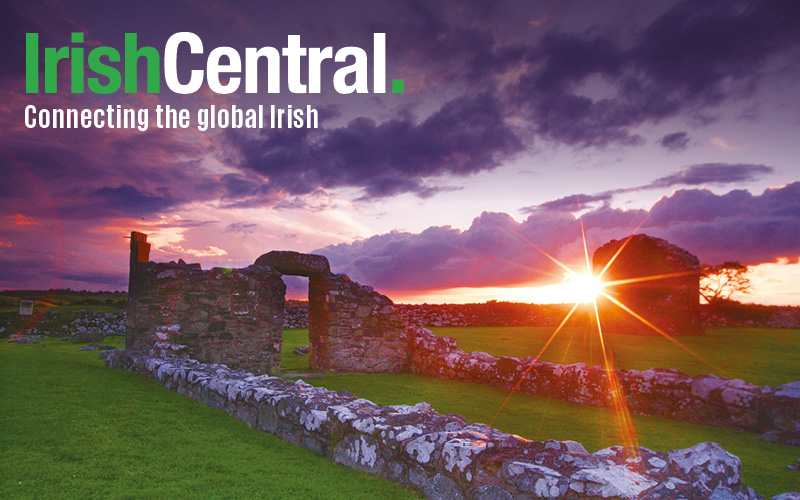The townland of Ballinabeag is empty now. Four stone gables facing west are all that remains of the last homes. Tombstones to those gone.
There are black cattle in the greening fields inside the stubbornly marching stone walls. The fields are now leased to farmers from the next townland.
When the morning suns stride over the long reach of the old townland they reveal the faint earth marks of the potato gardens which once fed more than a hundred men, women and children. Gone, all gone away.
Ballinabeag is empty now like many's another townland along the rugged west coast. The Atlantic, though not in view, is close enough across the mountain for one to hear it complaining on stormy nights when rain scourges those tombstones to a people. A growling elemental kind of requiem.
Murtagh sits across the hearth from me. We are far away from his boyhood Ballinabeag in both time and place, but his old face is etched with the boundaries of memory. His eyes are not looking at me but seeing through me and past me and beyond me entirely.
There are no bodies or souls attached to the statistics of the ritual emigration which kills off or maims the Ballinabeags. I keep my mouth closed, though, because the blunt truths that Murtagh speaks about his home place are earthily spellbinding. They add warm blood and salty sweat and tears and life to the cold statistics.
"There was gypsy blood in the grandmother of the Mallons and you'd know it in all the women that came after because they wore brighter skirts and blouses than any of the other women in the parish, red skirts often and yellow cardigans. You would see them moving around a mile away.
“In my young days the old people would not be too pleased if you went a-courting a Mallon girl because of that. But they were lovely and lively.
“The Mallons were the first to leave in the fifties. They had no land anyway, just farm laborers.
“The Mallons went to Birmingham. The Noones went out to Chicago, all of the young ones one after another. They had an uncle out there who did well for himself and claimed them out as soon as they were old enough, one after another.
“None of them ever came back. They were a quiet crowd that did not mix too much but they were decent people all. TB killed a lot of the generation of them before my time. They went to Chicago.
"The Dwyers went to Chicago too in later years when times were hard here. The O'Loughlins went to London. The Maxwells went to Birmingham in England.
“The O'Connells went to Boston. There was a big connection of them too, big hardy lads and lassies, well fit for hard work.
“The Cahills, the whole family, including a baby, took advantage of the assisted passage scheme in England to emigrate to Australia. One of them went into politics there and did well. None of them ever came back as far as I know.
“Yes, the Cahills all went to Australia. The Doonicans went to Australia too some years later.
“The Nilands went to Glasgow where the grandfather came from. They were a big loss because they had great hands for fixing engines, especially the diesel engines of tractors, and they did not charge too much either. A big loss for sure.
"The Murphys went to New York. Some of them went to San Francisco as well. They were great footballers and athletes even though they were small lads. But they were strong and knacks with it.
“The Johnstons were Presbyterians, great farmers. They bought or leased the farms of those that left, usually they bought. They never left, but the last couple of them were childless and the farm went to a nephew in Cork who still owns it as far as I know. I heard he was a clergyman.
"The Greenes all went to heaven from Ballinabeag because they made two priests for the African Missions and the three girls all became nuns away out foreign. One of the priests came back still a young man, but his health was destroyed with malaria or some of them diseases. He was as yellow as an orange. He's buried below with his parents.
“Yes, the Greenes all went to heaven. The Brodericks all went straight to hell!"
Dammit I'm a reporter still. That last statement broke my rapt silence.
How did he know that all the Brodericks from Ballinabeag went straight to hell?
He would not answer me, just shaking his old white head and saying simply that the Brodericks came from what he called "the dark side" of the townland.
Is there not always a dark side?
I'll leave it there for the moment. If I discover exactly what route the Brodericks descended into hell by I will let ye know for sure.




Comments